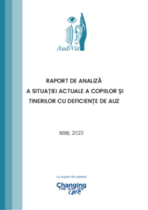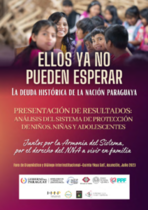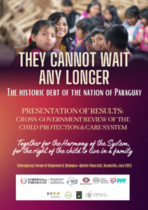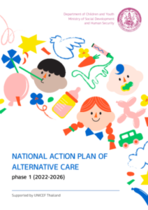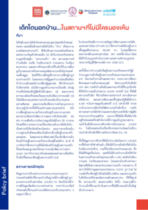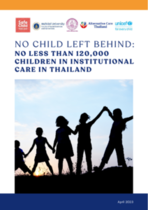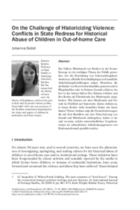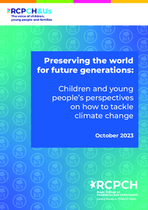Raport de analiză a situației actuale a copiilor și tinerilor cu deficiențe de auz
În perioada ianuarie - iunie 2023, Asociația de Suport Familial de Recuperare Timpurie a Copiilor cu Deficiențe de Auz și Văz ”AudiViz” a realizat un studiu care a avut scopul de a analiza perceptia parintilor și a copiilor/tinerilor cu dizabilitate de auz privind calitatea vietii lor, a serviciilor oferite de autoritățile publice și dacă acestea răspund nevoilor lor sau contribuie la sprijinirea familiei, la reabilitarea şi integrarea socială, educațională.

